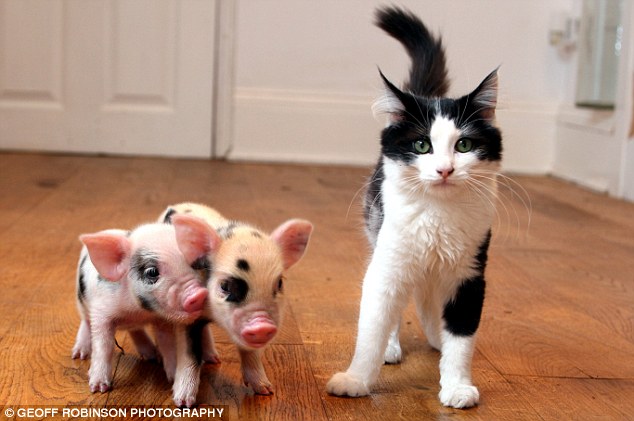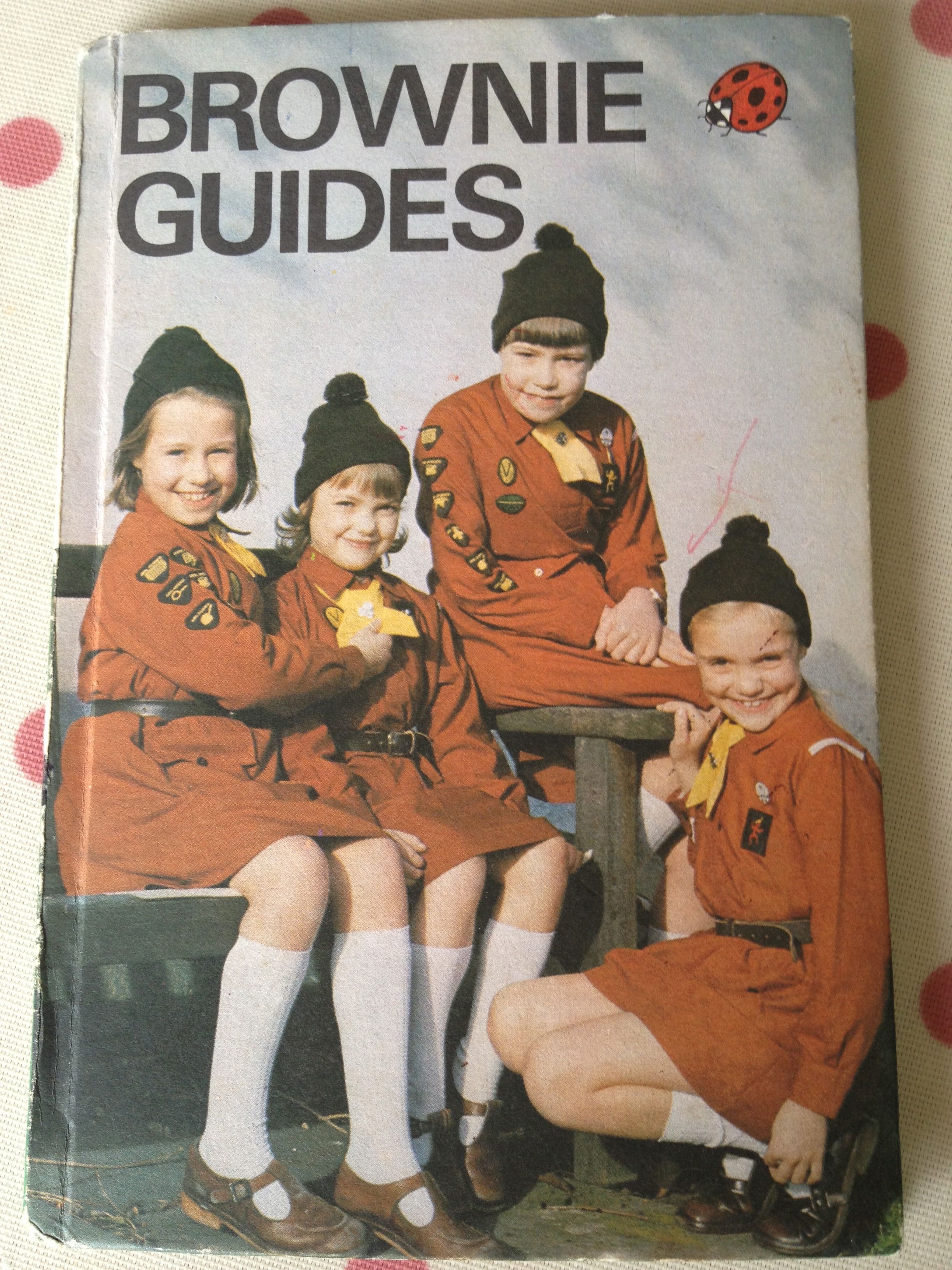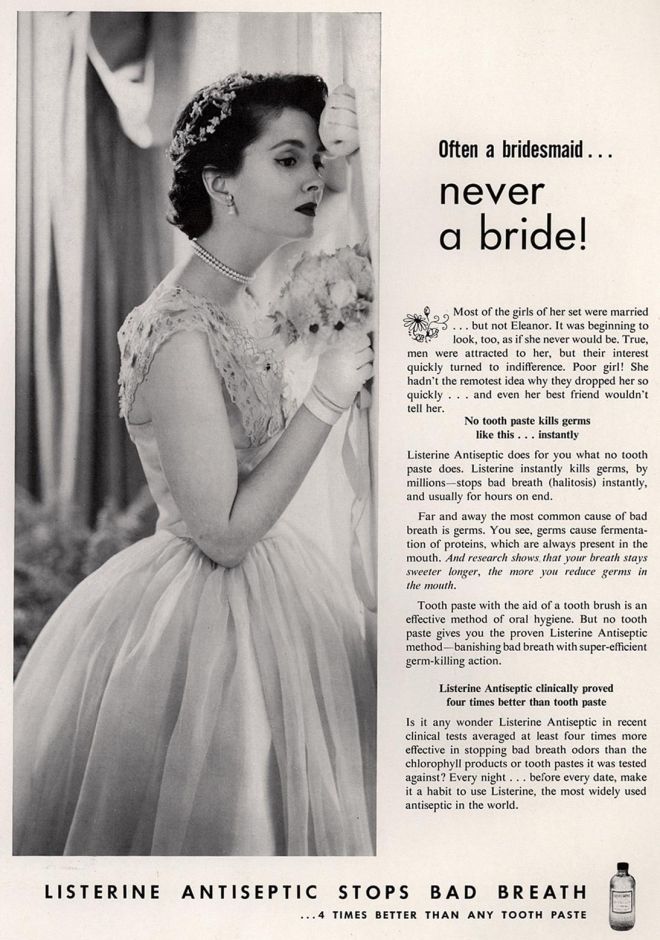Top 10 Origins of Common English Sayings
2014.03.12
The English language is extensive. You've probably discovered thousands of new and complicated words throughout your life, what more idioms which meanings you know but origins are a blur. Sometimes phrases even deviate from its original intentions.
Here are the origins of 10 everyday idioms used in the English language:
1. “The Cat’s Out of the Bag”

During the Late Middle Ages, a pig farmer would sell piglets by placing them in bags and given to whoever purchased them. But it was a common fraud for the farmer to replace one of more piglets with cats, which were much cheaper and easier to come by than piglets. So the saying "let the cat out of the bag" referred to a person finding out their piglet was replaced by a cat.
2. “Spitting Image”
There is no spit involved here. A "spitting image" of another person means they look just like them. Some theories suggest that "spitting image" is a bastardization of spit and image," which doesn't really make sense. Other theorists argue that it was originally "spirit and image" which would make more sense, except that it was completely made up; probably etymologists in a "what if" moment.
3. “The Birds and the Bees”
This expression used to describe the subject of sex apparently originated from Cole Porter's classic, "Let’s Do It, Let’s Fall in Love,” with the line “Birds do it, bees do it.” Interestingly, the original lyrics of the song were racist to Japanese and Chiinese people, but Porter changed them to be less insanely racist so that the song could be played on air.
4. “Brownie Points”

There are a few theories about the origin of "brownie points," but the most plausible one is that it is based off a merit badges earned by junior Girl Scouts for being helpful. Junior Girl Scouts are also called "Brownies," named after the Scottish folklore where "brownies" are little helpful elfin creatures that do household chores while the family sleeps.
5. “No Dice”
Gambling with dice was illegal in most States in the early 20th century. So when gamblers were approached by police, they'd swallow the dice so there'd be no evidence against them.
6. “Paint the Town Red”
In 1837, Henry Beresford, the 3rd Marquess of Waterford, took a group of friends out to celebrate after a particularly successful hunting trip. Part of the celebration including getting frink, and painting the toll-bar and several buildings in the town of Melton Mowbray red.
7. “Chip on Your Shoulder”
In 19th century New York, placing a small wood chip on your shoulder was an invitation for a fight. If someone knocked that chip off your shoulder, it meant that they wanted to fight. So when people got into heated arguments, one would often place a wood chip on his shoulder and dare the other to knock it off, initiating a brawl.
8. “The Whole 9 Yards”
This expression has been called “the most prominent etymological riddle of our time.” There are many bizarre theories about its origin, some of which include the fact that WWII airplane machine gun ammunition belts were 9 yards long, or that nine yards is the cubic measure of the volume of a cement mixer, or a first down in American football, or ritual disembowelment, or shipyards, or using a full 9 yards of cloth to make a bridal gown.
9 “Always a Bridesmaid, Never a Bride”

This saying was surprisingly used to advertise Listerine products. The brand promoted mouthwash at the expense of unmarried women at the time, who desperately wanted to marry but seemed to be on the left side of things. It was first used in the 1920s, portraying a situation and possible explanation to why these girls couldn't land a husband. The ad went like:
10. “Back to Square One”
This expression is traced back to the early days of BBC radio when sports commentators took an experimental approach to broadcasting Britain's favorite sport - football or soccer. The field was divided into eight theoretical squares and the commentator relayed the position of the ball and players to the audience by indicating the position of the squares. But the system was abandoned by World War II. But the expression “back to square one” survived and found its way into common English use. The alternative theory suggests that the expression was derived from the board game Snakes and Ladders when an unlucky roll would send you back to the start, or square one.
Here are the origins of 10 everyday idioms used in the English language:
1. “The Cat’s Out of the Bag”

During the Late Middle Ages, a pig farmer would sell piglets by placing them in bags and given to whoever purchased them. But it was a common fraud for the farmer to replace one of more piglets with cats, which were much cheaper and easier to come by than piglets. So the saying "let the cat out of the bag" referred to a person finding out their piglet was replaced by a cat.
2. “Spitting Image”
There is no spit involved here. A "spitting image" of another person means they look just like them. Some theories suggest that "spitting image" is a bastardization of spit and image," which doesn't really make sense. Other theorists argue that it was originally "spirit and image" which would make more sense, except that it was completely made up; probably etymologists in a "what if" moment.
3. “The Birds and the Bees”
This expression used to describe the subject of sex apparently originated from Cole Porter's classic, "Let’s Do It, Let’s Fall in Love,” with the line “Birds do it, bees do it.” Interestingly, the original lyrics of the song were racist to Japanese and Chiinese people, but Porter changed them to be less insanely racist so that the song could be played on air.
4. “Brownie Points”

There are a few theories about the origin of "brownie points," but the most plausible one is that it is based off a merit badges earned by junior Girl Scouts for being helpful. Junior Girl Scouts are also called "Brownies," named after the Scottish folklore where "brownies" are little helpful elfin creatures that do household chores while the family sleeps.
5. “No Dice”
Gambling with dice was illegal in most States in the early 20th century. So when gamblers were approached by police, they'd swallow the dice so there'd be no evidence against them.
6. “Paint the Town Red”
In 1837, Henry Beresford, the 3rd Marquess of Waterford, took a group of friends out to celebrate after a particularly successful hunting trip. Part of the celebration including getting frink, and painting the toll-bar and several buildings in the town of Melton Mowbray red.
7. “Chip on Your Shoulder”
In 19th century New York, placing a small wood chip on your shoulder was an invitation for a fight. If someone knocked that chip off your shoulder, it meant that they wanted to fight. So when people got into heated arguments, one would often place a wood chip on his shoulder and dare the other to knock it off, initiating a brawl.
8. “The Whole 9 Yards”
This expression has been called “the most prominent etymological riddle of our time.” There are many bizarre theories about its origin, some of which include the fact that WWII airplane machine gun ammunition belts were 9 yards long, or that nine yards is the cubic measure of the volume of a cement mixer, or a first down in American football, or ritual disembowelment, or shipyards, or using a full 9 yards of cloth to make a bridal gown.
9 “Always a Bridesmaid, Never a Bride”

This saying was surprisingly used to advertise Listerine products. The brand promoted mouthwash at the expense of unmarried women at the time, who desperately wanted to marry but seemed to be on the left side of things. It was first used in the 1920s, portraying a situation and possible explanation to why these girls couldn't land a husband. The ad went like:
Poor Edna was getting on for thirty and most of her girlfriends were either already married, or about to tie the knot. How she wished that, instead of being their bridesmaid, she could be the bride! However, any romance of hers invariably ended quickly. There was a reason. Unbeknownst to her, she suffered from bad breath and no one would tell her, not ever her closest friends.The advertisement sold millions of bottles of mouthwash and a new English saying was born!
10. “Back to Square One”
This expression is traced back to the early days of BBC radio when sports commentators took an experimental approach to broadcasting Britain's favorite sport - football or soccer. The field was divided into eight theoretical squares and the commentator relayed the position of the ball and players to the audience by indicating the position of the squares. But the system was abandoned by World War II. But the expression “back to square one” survived and found its way into common English use. The alternative theory suggests that the expression was derived from the board game Snakes and Ladders when an unlucky roll would send you back to the start, or square one.
More Articles
Copyright © Fooyoh.com All rights reserved.